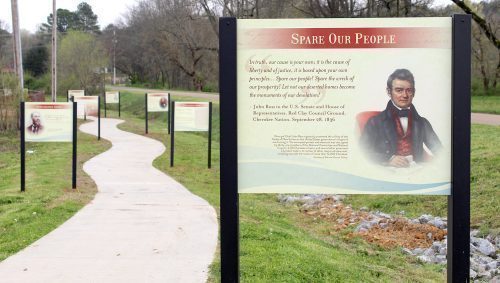
Tour Charleston’s Significant History at the Hiwassee River Heritage Center
Located along the banks of the Hiwassee River, present-day Charleston, Tenn., played a significant role in history in Southeast Tennessee. Once part of the Cherokee Nation, both the Cherokee Removal and the Civil War played out along the banks of the river there. Today visitors can learn more about the town’s important history and sites at the Hiwassee River Heritage Center.
Cherokee History in Charleston, TN
The land now occupied by Charleston and Bradley County, Tenn., was once part of the Cherokee Nation. As European settlers began arriving in the 1700s, conflicts erupted throughout the region. After the Hiwassee Purchase of 1819 land treaty was initiated, the Cherokee Agency – the official liaison between the Cherokee Nation and the U.S. Government – was moved to present-day Charleston. A trading post and store were established nearby. The site of the agency is believed to have been located on a hill across the spring from the historic Henegar House in Charleston.
Initiated by the Treaty of New Echota in December 1835, Fort Cass was constructed in Charleston as the federal headquarters for the Cherokee Removal. During the summer of 1838, thousands of Cherokee people from various locations throughout the Southeast were forcibly held in internment camps at Fort Cass under the supervision of federal troops before starting their journey westward, which became known as the Trail of Tears. Several internment camps were spread out between Charleston and present-day Cleveland, Tenn., including one at nearby Rattlesnake Springs, where the final Council of the eastern Cherokees was held before the removal.
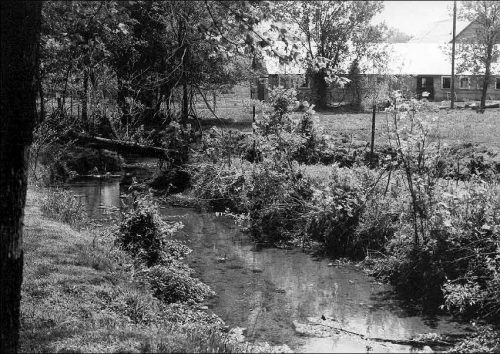
Civil War History in Charleston, TN
Built in 1842, the East Tennessee & Georgia Railroad bridge in Charleston served as a strategic link connecting the Southern industrial belt with Confederate armies in Tennessee and Virginia. Union loyalists burned the bridge, which was originally a covered bridge, on November 8, 1861, and Union and Confederate forces damaged it numerous times after it was rebuilt. The current railroad bridge still rests on its original pre-Civil War piers.
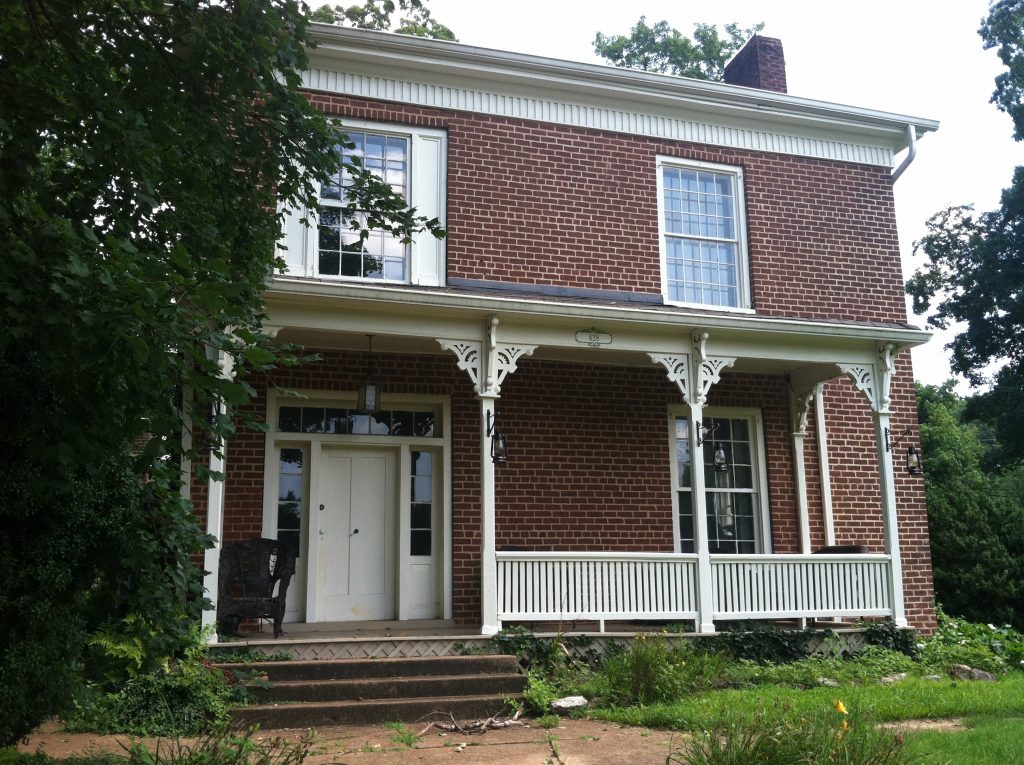
The brick, Federal-style Henegar House – the oldest remaining brick structure in Bradley County – was built in 1849 by Henry Benton Henegar, wagonmaster and secretary under Cherokee Chief John Ross. Henegar accompanied the Cherokee on their forced removal to the west and then returned to Charleston. During the Civil War, the house was used as headquarters by both Union and Confederate generals, including William Sherman, Oliver Howard, Marcus Wright and Samuel Buckner.
Built in 1860, Charleston Cumberland Presbyterian Church, located on Railroad Street, served was used as a hospital by Confederate forces. Soldiers tethered their horses to the corner boards and window sills, which still show deep scars made by the horses’ teeth. The church cemetery is enclosed by a c. 1910 cobblestone wall and contains many 19th century graves and monuments. The church was added to the National Register of Historic Places in 1984.
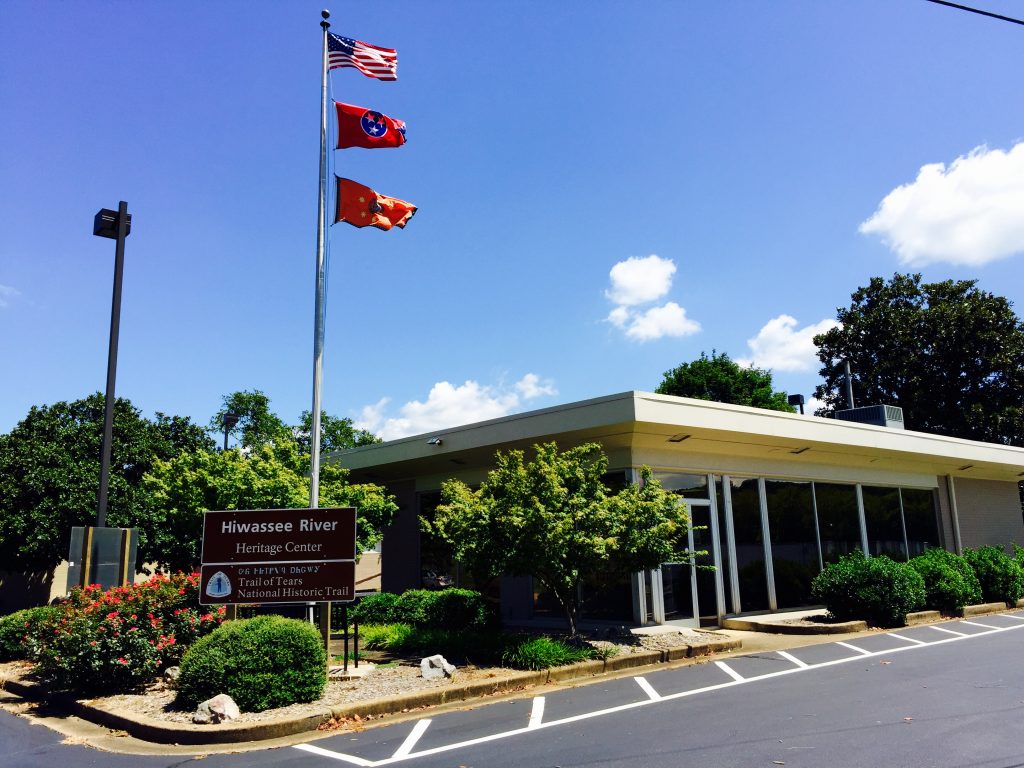
Hiwassee River Heritage Center
The Hiwassee River Heritage Center in Charleston offers a glimpse into the town’s significant early history, including pre-Cherokee Native peoples, Cherokee settlements, the federal Indian Agency, Fort Cass, the Cherokee Removal and the Civil War.
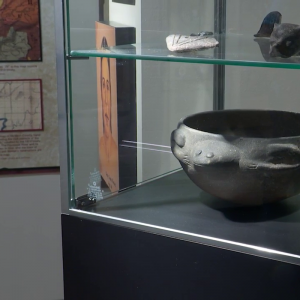 In 2019, the center opened a National Historic Trail experience, Voices from the Past, which connects the center to Charleston Park. The trail displays quotes about the Cherokee Removal at Fort Cass from Cherokee people, missionaries and military figures.
In 2019, the center opened a National Historic Trail experience, Voices from the Past, which connects the center to Charleston Park. The trail displays quotes about the Cherokee Removal at Fort Cass from Cherokee people, missionaries and military figures.
A new display in the exhibit hall highlights a variety of colorized sketches drawn by Madeline Kneberg, known for her work on excavations in the Tennessee Valley beginning in the 1930s. Kneberg was the first female to become a full professor at UT outside of the home economics curriculum
and one of the first prominent female archaeologists in the U.S.
The Hiwassee River Heritage Center is located at 8746 Hiwassee Street in Charleston, Tenn. For more information, visit HiwasseeHeritage.com.








